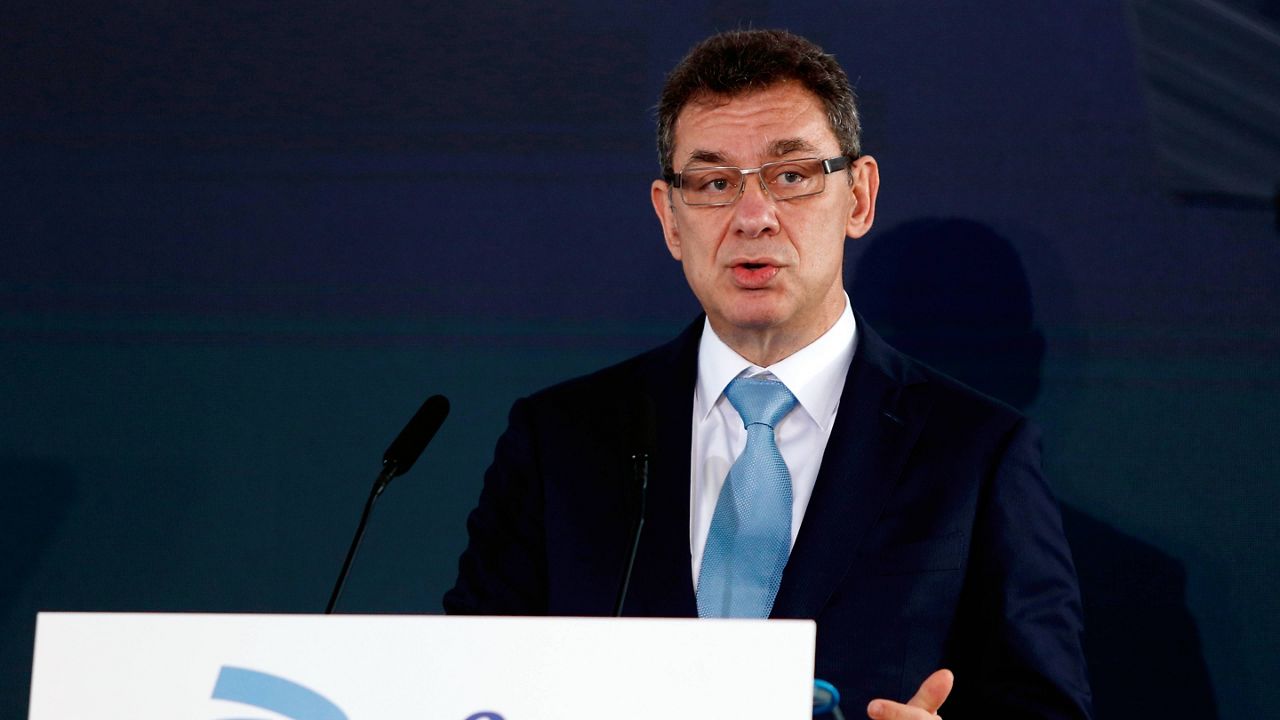A fourth dose of vaccine is needed to keep people protected against COVID-19, Pfizer CEO Albert Bourla said Sunday.
What You Need To Know
- In an interview Sunday with CBS’ “Face the Nation,” Pfizer CEO Albert Bourla said a fourth dose of vaccine is needed to keep people protected against COVID-19
- He said protection against hospitalization and death from a third Pfizer-BioNTech shot still has been “quite good,” but “doesn’t last very long"
- Bourla also said Pfizer is currently working to develop a vaccine that protects against all variants and lasts about a year
- The CEO added that Pfizer hopes to submit data to the FDA on a vaccine for children ages 6 months to 4 years; if approved, the shots could be available as soon as May
In an interview with CBS’ “Face the Nation,” Bourla noted that the omicron variant “was the first one that was able to evade, in a skillful way, the immune protection that we’re giving.”
He said protection against hospitalization and death from a third Pfizer-BioNTech shot still has been “quite good,” but “doesn’t last very long.”
“The way that we have seen, it is necessary, a fourth booster right now,” Boula said. “ … We are just submitting those data to the FDA, and then we will see what the experts also will say outside Pfizer.”
Dr. Anthony Fauci, director of the National Institute of Allergy and Infectious Diseases, said last month that federal health officials were exploring the possibility of recommending an additional booster shot.
The Food and Drug Administration has approved a third shot of the Pfizer and Moderna mRNA vaccines, which have two-dose primary regimens. The booster shot may be given at least five months after the second dose.
Moderately to severely immunocompromised people are currently eligible for a fourth shot.
Individuals who initially received the single-dose Johnson & Johnson vaccine are eligible for a booster shot after two months.
Nearly two-thirds of Americans — about 217 million people — have been fully vaccinated. But only 44% of the fully vaccinated received a booster shot.
A CDC study published in January found that mRNA vaccine effectiveness fell from 52% to 38% six months after the second shots, but rose to 82% after a booster was administered.
Bourla said the relatively short-lived protection against COVID-19 isn’t limited to the vaccines — people are sometimes getting reinfected just a few months after initially contracting the virus.
He said Pfizer is currently working to develop a vaccine that protects against all variants and lasts about a year. If that is successful, “we can go back to really the way used to live,” he said.
Bourla also said Pfizer hopes to submit data to the FDA on a vaccine for children ages 6 months to 4 years. If approved, the shots could be available as soon as May, he said.



